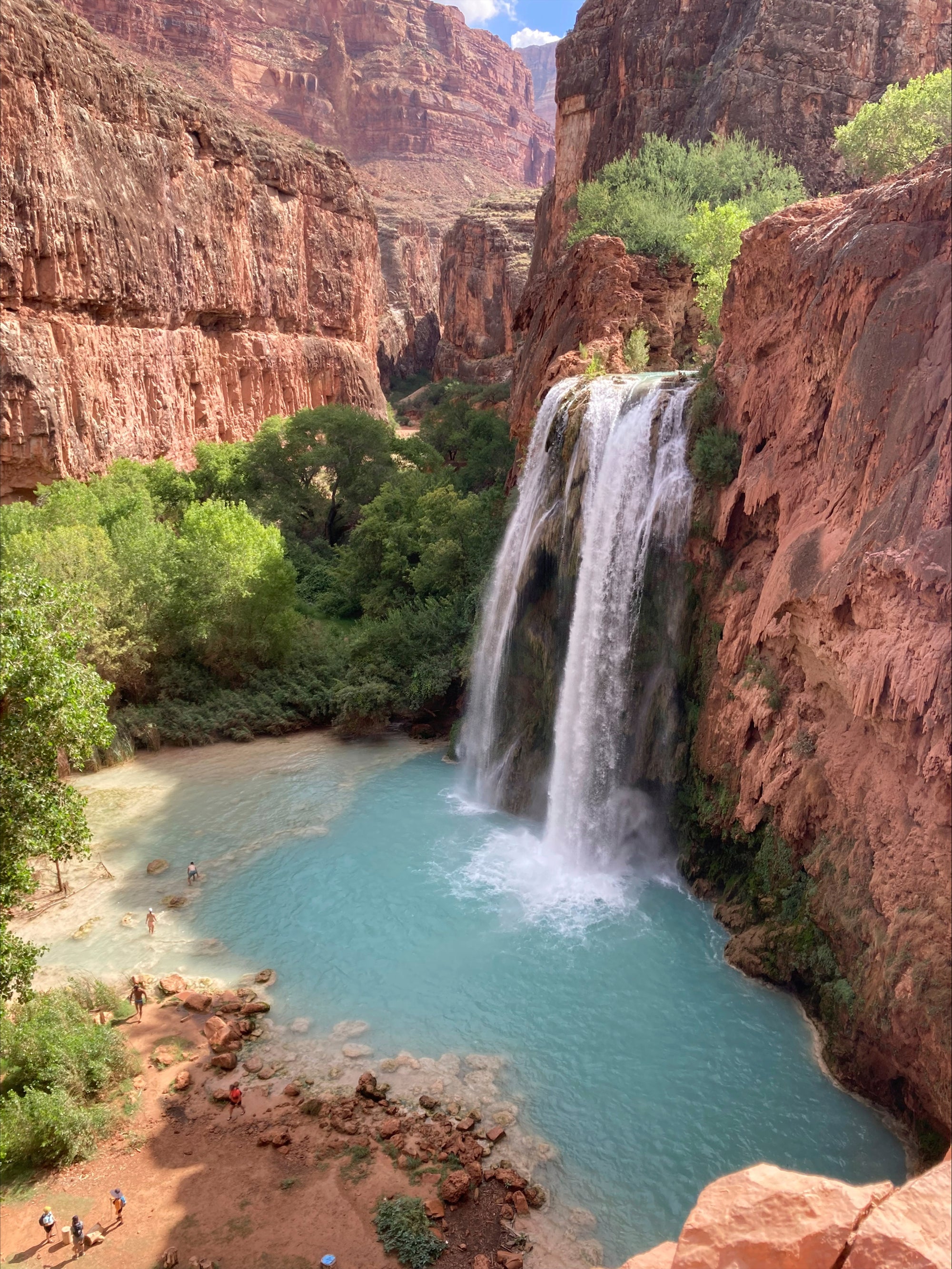Dozens fall ill after visiting this tourist attraction near the Grand Canyon
The hikers became unwell after visiting a popular Arizona tourist destination known for its towering blue-green waterfalls

Dozens of hikers claim to have fallen ill during trips to a popular Arizona tourist destination that features towering blue-green waterfalls deep in a gorge neighboring Grand Canyon National Park.
Madelyn Melchiors, a 32-year-old veterinarian, said she was vomiting severely Monday evening and had a fever that endured for days after camping on the Havasupai reservation.
She eventually hiked out to her car in a weakened state through stiflingly hot weather and was thankful that her pack could be transported up a winding trail several miles by mule, she said.
“I said, ‘If someone can just pack out my 30-pound pack, I think I can just limp along,’” said Melchiors, an experienced and regular backpacker. Afterward, “I slept 16 hours and drank a bunch of electrolytes. I’m still not normal, but I will be OK. I’m grateful for that.”
The federal Indian Health Service said on Thursday that a clinic it oversees on the reservation is providing timely medical attention to people who became ill. Environmental health officers with the regional IHS office were sent to Havasupai to investigate the source of the outbreak and to implement measures to keep it from spreading, the agency said.
“Our priority is the health and well-being of the Havasupai residents and visitors, and we are working closely with local health authorities and other partners to manage this situation effectively,” the agency said in a statement.
While camping, Melchiors said she drank from a spring that is tested and listed as potable, as well as other sources using a gravity-fed filter that screens out bacteria and protozoa – but not viruses.
“I did a pretty good job using hand sanitiser” after going to the bathroom, she said. “It’s not like you can use soap or water easily.”
Coconino County health officials said on Tuesday they received a report from a group of people who hiked to the waterfalls of “gastrointestinal illness” but didn't know how many people have been affected. The tribe's land is outside the county's jurisdiction.
Still, county health spokesperson Trish Lees said hikers should take extra precautions to prevent the spread of illness, including filtering water.
“Watch for early symptoms of norovirus, such as stomach pain and nausea, before the trip. Norovirus spreads easily on camping trips, especially when clean water supplies can be limited and hand washing facilities may be non-existent. Isolate people who are sick from other campers,” the county said.
Thousands of tourists travel to the Havasupai reservation each year to camp near a series of picturesque waterfalls. The reservation is remote and accessible only by foot, helicopter, or by riding a horse or mule.
The hike takes tourists eight miles down a winding trail through desert landscape before they reach the first waterfall. Then comes the village of Supai, where 600 tribal members live year-round. Another two miles down the trail are camp sites with waterfalls on both ends.
Tourism is a primary source of revenue for the Havasupai Tribe. The campground that has a creek running through it has limited infrastructure. The hundreds of daily overnight campers can use composting toilets on site and are asked to pack out refuse. Recent accounts from hikers on social media indicate trails are littered with garbage, including bathroom tissue, plastic bottles and fuel canisters.
The Havasupai Tribe Tourism Office says it tested the water last week from a local spring that visitors rely on for drinking and found it was safe for human consumption.
FOX-10 TV in Phoenix first reported on the illnesses Wednesday, saying some groups opted to take a helicopter out of the canyon because they were too sick to hike out.
Dozens of other people have posted on social media in recent days describing their travails with gastrointestinal problems.
“I definitely have a literally bitter taste in my mouth right now," Melchiors said. "I think I would approach things a little bit differently.”
Join our commenting forum
Join thought-provoking conversations, follow other Independent readers and see their replies
Comments
Bookmark popover
Removed from bookmarks